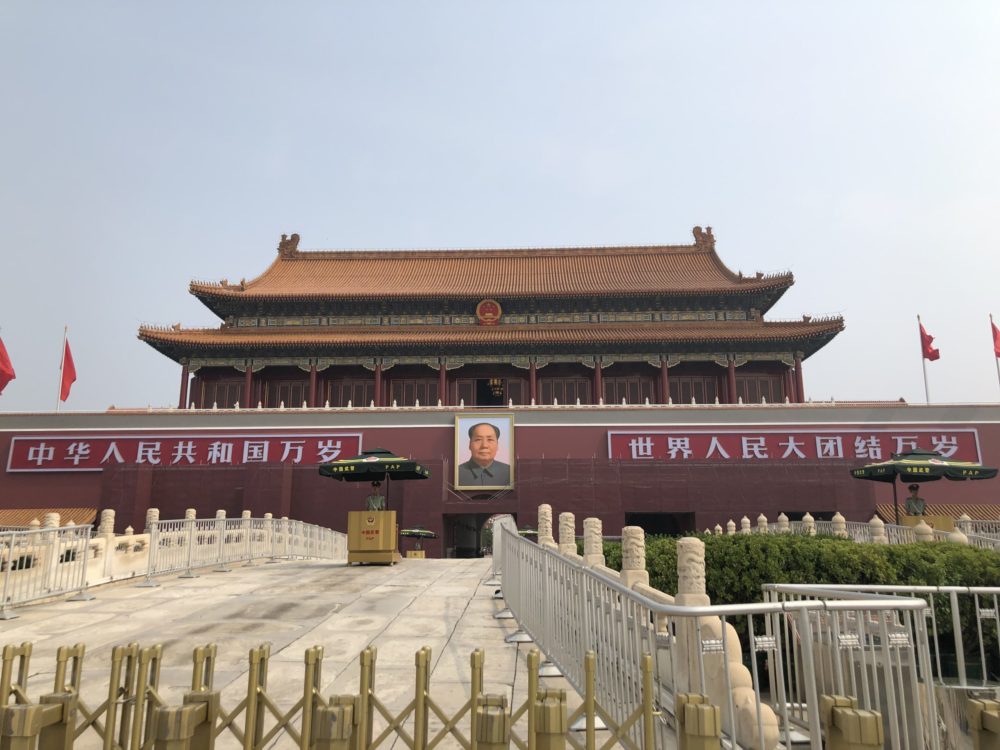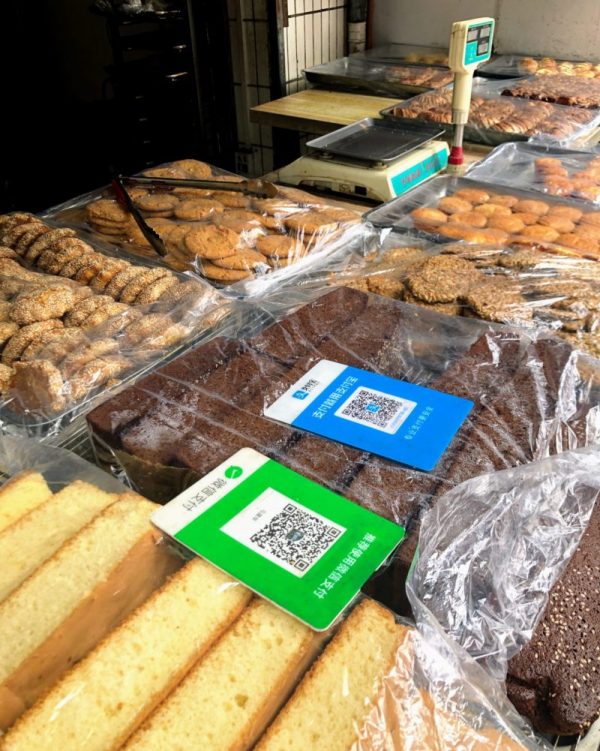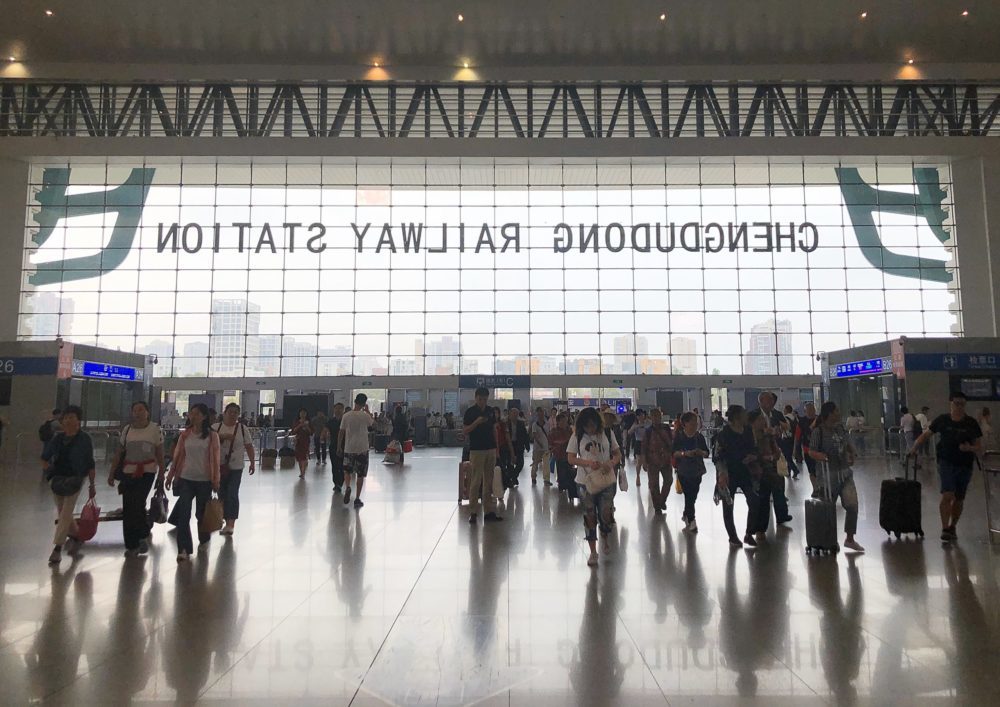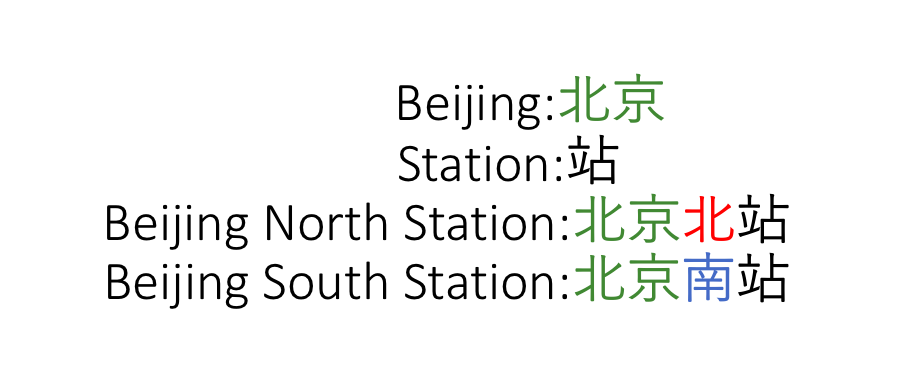
9 Tips for Visiting China!
Getting ready for your first visit to China? Keep reading for 9 tips for newbie visitors to Mainland China who are planning their own itinerary, but don't quite know where to begin. Must know tips for visiting China!
I recently went to China for the first time myself, and a little advance planning can make all the difference. Hopefully this post can leave you feeling a bit more prepared for your first visit!

What You Need to Know Before Visiting China
1. Print the name and address of your hotel and the main destinations you want to visit in Chinese characters.
(Unless, of course, you speak Mandarin… ) Chinese characters are logographic (aka each character represents a word), so you can’t make a best guess attempt to sound out Chinese characters on the fly. An English transliteration may not cut it with your cab driver. If you have the name in Chinese already with you, any local can type it into their own map app to help you out. This is especially useful when you’ve just landed and are going to your hotel. Wandering around lost with luggage is never fun, especially if you’re fighting jet-lag.

2. Download a translation app!
Throughout my time in China, people young and old had at least one translation app on their phone. Using an app to help communication worked wonders in small shops, asking for directions and even reading signs in museums and restaurants. For museums or translating menus, signs, etc., I highly recommend Google Translate. You can take a photo of any display, and the app will scan the photo, translating any Chinese into English right there on the spot! The live translation feature can be a bit buggy, but the image option works well. Even though the Google Suite doesn’t work well in China, if you pre-download Google Translate it will work. (Honestly, I’ve used it across multiple countries, and it hasn’t let me down yet.)
3. Download DiDi, China’s equivalent of Uber.
You’ve got your hotel name written down, your translation app ready. Now all you need is the taxi. DiDi allows you to request a pick-up just like Uber, and the great part is that you will know the fare. There is no need to haggle or guess. Full transparency: DiDi was finicky for me, but I have heard great reviews from friends who have used it since. It’s worth a shot!
4. Having a VPN is key.
Instagram loving, Gmail-using friends out there, you need to download a VPN to be able to access these sites while in Mainland China. DON’T WAIT until you arrive, as most VPNs that you need will not be accessible in the App Store / for download once you’re actually in China. I recommend downloading at least 2, one paid and one or two free.
5. WiFi is all over, but may not be accessible without a local phone number.
Many coffee shops and restaurants will over free wifi, but you may need a Chinese mobile number to access it. Even chains like Pacific or Costa Coffee require users to login via WeChat using a local phone number. This can be really frustrating, especially if you only have a limited data plan while traveling. Think of free wifi as given at your hotel, but a lucky bonus anywhere else. Otherwise you may just end up let down or annoyed.
6. Download WeChat.
Communicating with tour guides and local hosts will be much easier if you can connect on WeChat, one of China’s top messaging apps. If you have wifi or data you message over WeChat without having a local Chinese phone number.
7. Bring cash!
Especially if you’re visiting from the US. Mobile pay is probably the most popular payment method in cities, but in order to open an account with WeChat or AliPay until recently you needed a Chinese bank card. You’ll see QR codes everywhere, from major department stores to small vegetable vendors. Note: As of November 2019 foreign credits may be accepted with WeChat or AliPay, so fact-check before you’re ready to actually leave on your trip. Also, not all ATMs accept foreign cards, so another reason to keep enough cash on hand if you’ve been adventuring around the city and want to get a cab back to your hotel.

8. When taking the train between destinations on your visit to China, arrive AT LEAST 1 hour early.
Train stations can be sizable, and expect a queue to pick up your tickets. Ordering tickets in advance through CTrip is super easy, and the app will even generate a message in Chinese for you to show at the counter for ticket pick-up. Note that foreigners must pick up their tickets at a counter from a staff person. Unless you have a Chinese ID card, you cannot use the automatic ticket machines. I actually missed my train to Beijing earlier this year because I didn’t leave enough time to wait in line. But, if you do miss your train it is not the end of the world. They just re-booked me on a later one.
If you’re traveling for a couple weeks and already purchased your tickets, you can pick them all up at once at the time of your first departure. This will save you a lot of time waiting!

The first 8 tips for planning your trip to China are pretty easy, but the last one is more of a challenge. If you’re up for it, it will make navigating bus and train travel just a bit easier.
9. Learn the Chinese characters for North, South, East, West and the name of the destination you're heading to.
Many of China’s cities have multiple train and bus stations, and knowing the characters for where you’re going and the cardinal directions will help prevent you from showing up at the wrong station on your way to your next destination. In Beijing alone there are 5 train stations, the main Beijing train station and then a north, south east and west. You just have to be able to recognize the different characters, don’t worry about pronunciation
- East: 东 (dōng)
- South: 南(nán)
- West: 西 (xī)
- North: 北 (běi)

Good news! Beijing translates to ‘northern capital’, so if you keep that in mind, you’ve already memorized at least one! It can get a little tricky, but remember that usually the destination name will come first, followed by the direction.
Here are guides to visiting some of China's best destinations!
- Chengdu - Located in the Heart of
- List Item #2
- List Item #3
Read my Visitor Guides for the must-see (and must-eat) spots in these amazing Chinese cities!
You are now 9 steps closer
to planning a successful first trip to China!
Looking for more tips or have recommendations you can share with other travelers? Let us know in the comments below!










Thanks for putting together these handy tips for first-timers going to China. Writing down (in Chinese characters) the main names of your hotel and places you’re visiting is a fantastic idea! It would make getting around so much easier. I also think the translation app would be super handy.
Chengdu is my favorite city in the country! For learning some basic Chinese and doing translations, I really like the Pleco app as well.
Yes! Great point about Pleco. Chengdu is the best, and I am dreaming of the hot chili oil wontons still!
These are really helpful tips, thanks so much for sharing! I had no idea about needing a Chinese number to access Wifi out there, that one definitely would have caught me out!
Theses are great tips for a first time trip to China. It’s such a great country to explore, but it’s also very useful to do some advance planning before you arrive to make the trip go smoother. We couldn’t believe how many locals used a translate app!
I really want to visit China, but the difference in culture worries me slightly as I don’t want to accidentally offend anyone! But when I do go, I’ll be sure to use your list of tips.
Completely understand your concern, but definitely still go! If you’re at all worried consider booking tours for your first couple days and then branch off to exploring on your own after that. I love starting with walking tour to get my bearings.
These are such valuable tips, thanks so much for sharing! So many things I would have never thought of myself so this article’s a real lifesaver! Saving this on Pinterest to remember for future travels 🙂
These are great tips! We traveled along the Ancient Silk Road in China last summer and also downloaded WeChat before going, and it was very useful! And you’re absolutely right: VPN is very important. We even had 5 different VPNs to make sure we could switch from one to the other in case some didn’t work.
Yes, great tip! Between my wife and I we also had a few different ones. Some were free for the first couple days, and then we would switch it up. Good point!
These tips are so valuable! I would have never thought of memorising the characters for North, South, East, and West otherwise. Will refer to this list when I’ll plan my first trip to China 🙂
I haven’t really been to mainland China except for a business trip to Shanghai and a layover in Guangzhou. These are great tips for when I will go to Beijing!
Hi, Carol – If you visit Beijing you should also sign up for a Lost Plate tour. I had a fantastic food tour with that organization! Hope you make it there. 🙂
Oooh this is a super helpful post! Goodness…I have been to China before, but it was aaaages ago before smart phones. I imagine it would be a lot easier now there are translation apps! I don’t speak Mandarin, but I can read quite a few (Japanese) Kanji, so I had to write limited Kanji on papers to try to communicate.
You’ve made me want to go back and see more now it must be easier!
p.s. I totally agree about trains. We missed a train that only goes once a week (the whole way to Russia via Mongolia) we had to get a taxi and race the train through the desert. It was one of the craziest days of my life!
Oh, you must absolutely go back! When my wife and I were in Beijing and Chengdu we just kept saying that we wished we could have visited 10 years ago and 20 years ago to see the intense transitions and developments that these cities must have undergone over the past couple decades.
Wow! That train ride sounds like it would either would be filled with incredible views and an unforgettable experience, or just really long time on a train… What a memory! Thank you for sharing!
Pingback: Vegan and Vegetarian Guide to China | Voyaging Herbivore
Pingback: Visiting Pandas in Chengdu - What You Need To Know Before You Go